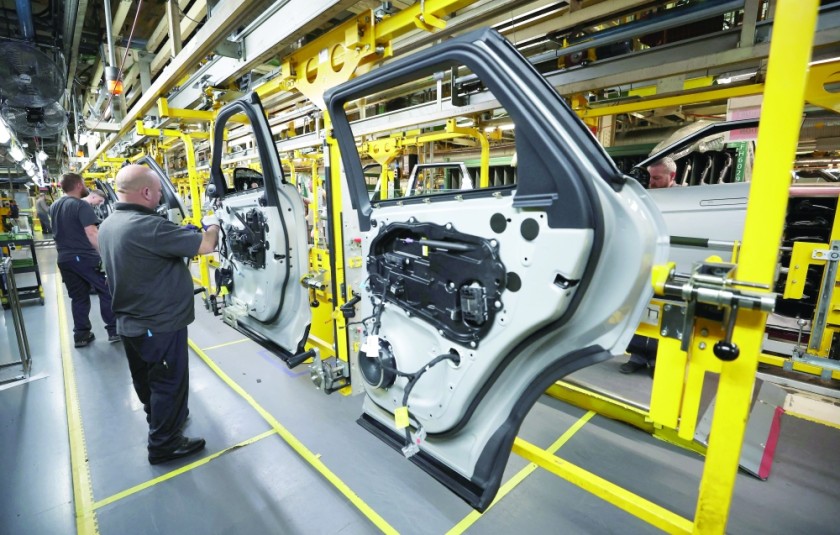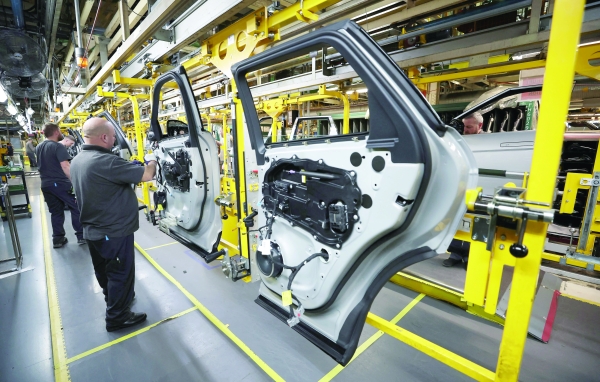Despite the somewhat grim prediction of the Treasury back around the time of the Brexit referendum, there have been some major success stories in Brexit Britain and manufacturing has been one of them. The prediction was of a year-long recession, a 500,000 increase in unemployment and a reduction in growth between three and six per cent.
Despite all the upheaval of the pandemic, supply chain problems and Brexit-related change, some home-produced technologies are in high global demand and jobs, exports and production are all set to grow.
There are some obstacles against manufacturing in the UK – including tariffs, high taxes and cyberattacks – but technological innovation and craftsmanship are not among them. It is a hard-won national competitive advantage. Britain dominates in top-end design, customisation, engineering and technological integration.
Top of them all is BAE Systems’ £10 billion deal to export five Type 26 frigates to Norway, British Naval engineering has not won an overseas victory like this for almost 50 years. It looks set to trigger a wave of export orders for UK Naval designs, engineering, hulls, weaponry, sensors and propulsion systems.
And the companies involved are confidently expanding their skills base, with BAE Systems’ £12 million academy on the Clyde and Babcock’s 400-strong apprenticeship programme at Rosyth.
In car manufacturing, producers are scrambling to transform their plants to electric vehicles and carbon-neutral facilities.
In 2023, over £20 billion was invested in car manufacturing. This includes £3 billion from Nissan on battery and electric vehicle production; and a £15 billion splash by Jaguar Land Rover to convert an engine plant to electric drive and upgrade its premium lineup.
There is reason for caution, however, over-reliance on electric vehicle sales could be catastrophic if government subsidies end or Chinese electric vehicles maintain their competitive edge.

Staff members assemble door panels on the production line at a car factory in Liverpool, Britain. — Reuters
As with many industries in the pre-Brexit era, the injurious combination of EU protectionism and generous subsidies on the continent saw car production slowly relocate to mainland Europe.
Despite this, Britain has successfully carved out a new competitive edge as a leading premium car manufacturer.
This sector is far less vulnerable to Chinese competition than Europe’s mass-market auto industry and it also enjoys a far bigger global appeal. By leaving the customs union in 2020, Britain has also been able to negotiate the lowest global tariff with America and avoid the EU’s ongoing trade war with China.
The biggest manufacturing success is, however, aerospace engineering. It is estimated that British aerospace has a guaranteed business backlog of £241 billion — or a staggering 12 years of constant work. The new Rolls Royce Ultrafan engine is expected to create 40,000 jobs by the 2030s and the company expects 8 per cent growth in manufacturing per year for a decade.
With a 17 per cent global market share, the United Kingdom is an undeniable global aerospace leader, second only to the United States. Aerospace, a ‘naturally global industry’, has been notable in that two-thirds of the exports of this fast-growing industry have come from outside the European Union over the past 25 years; and it has been as high as 75 per cent.
In fact, membership of the Customs Union prevented the UK from crafting a trade policy that suits its most competitive industries. A sound trade policy focuses on what goods or services attract the most demand; membership of the EU prevented such an exercise.
And yet incredibly, such a task has not been sufficiently undertaken in five years of Brexit Britain. If the government is serious about prioritising growth, this is an absolute no-brainer. In many respects, trade policy has been handed on a plate to the government through AUKUS agreement and the US trade deal.
It’s time Britain specialised its trade policy and prioritised its competitive advantages. These industries are a proven British success story — it’s only logical to expand what Britain is doing well.
